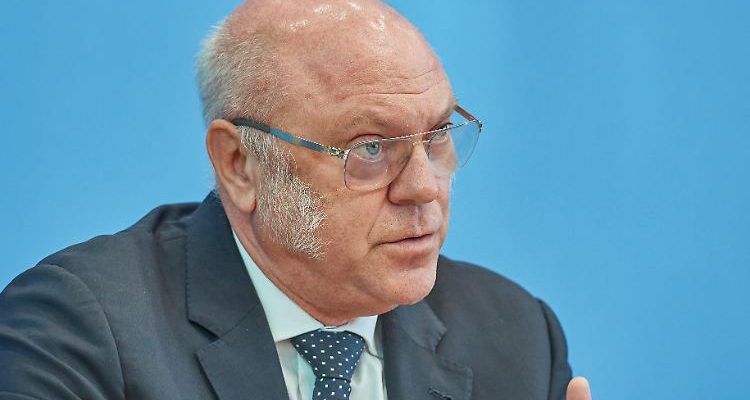Controversy over child security
“Mr. Lindner engages in political fluff”
4/3/2023 1:24 p.m
Federal Minister of Finance Christian Lindner is slowing down in view of the tight budgets for basic child security. The FDP chairman is thus fanning the next traffic light conflict after the heating dispute. Ulrich Schneider, managing director of the Paritätischer Gesamtverband, cannot understand the FDP’s position: the increased child benefit does not reach poor families, nor is it enough to bundle the existing benefits for children in poverty. Schneider is also critical of the reluctance of the SPD in the traffic light dispute.
ntv.de: Mr. Schneider, Federal Finance Minister Christian Lindner sees little financial leeway to underpin the planned basic child security with significantly higher rates and refers to the increase in child benefit to 250 euros that has already taken place. Why isn’t that enough for you?
Since 1999, Ulrich Schneider has been the general manager of the Paritätischer Wohlfahrtsverband, which represents more than 10,000 non-profit organizations.
(Photo: picture alliance / epd picture)
Ulrich Schneider: That’s political fluff that Mr. Lindner is doing. The child benefit is fully credited to families who receive Hartz IV. Therefore, nothing sticks to these families from the increase. This does not change with the citizen money.
But families in poverty will receive more money even without the additional billions that Family Minister Lisa Paus is demanding: the services will be bundled and digitized. Participation vouchers should also come. Isn’t that progress?
The digital platform is family-political chic, nothing more. And the families concerned will not be able to take advantage of the participation vouchers because the monthly 15 euros per child do not help. How are the parents supposed to raise the remaining 45 euros for the 60-euro piano lesson? A football club also costs significantly more than 15 euros per month, be it sportswear or travel to games and training camps.
Schickimicki would mean that bundling and digitization of services are worth nothing. The clearing of the application jungle sounds sensible.
Of course, digitization doesn’t hurt. We are all happy if we can submit applications more easily. But that’s not the way to fight child poverty. The benefits for families with children are below the official poverty line. In the end, only money can help against poverty. The Hartz IV rates must increase by at least 30 percent.
Finance Minister Lindner points to tight budgets and would rather prioritize getting parents of poor children to work.
Mr. Lindner is surprisingly uninformed throughout the discussion. Of the four million Hartz IV recipients, more than one million people are already in work, but cannot make a living from it. Among them are many single mothers. They can’t take care of three children at the same time and work full-time at the cash register at the discounter. Mr. Lindner is talking past reality. Also, getting more people into work takes time. It can’t be that the children of these parents are kept in income poverty for so long.
The argument of tight budgets remains…
Mr. Lindner has knocked out double-digit billions for a tax relief package, from which above all higher earners benefit. The abolition of the EEG surcharge also cost an amount in the double-digit billions, from which people with high electricity consumption benefit disproportionately. In this respect, the finance minister himself worked out the financial crunch, if it should exist.
The traffic light came with the aim of bringing conflicting social tendencies together for the benefit of all. Are we back in the old system battle – the FDP demanding the lean state against the fully comprehensive claim that the left-wing SPD and Greens postulate?
I don’t see where someone formulates a fully comprehensive claim if they want to protect children from poverty. The FDP is still an extraordinarily neoliberal party and the Greens not only make ecological demands, but have also been pursuing more and more social politics in recent years. The glue that was supposed to hold everything together in the traffic light quickly became brittle.
However, this government is led by the party that has the word “social” in its name. How do you assess the role of the SPD in this conflict?
The silence of Federal Chancellor Olaf Scholz and also of Federal Minister of Social Affairs Hubertus Heil on basic child security is now boomingly loud. The SPD apparently makes a slim foot and lets the coalition partners argue. On the other hand: If Herr Heil were to advocate higher benefit rates, he would have to admit that the Hartz IV rates for children are actually poverty rates at the moment. The SPD is partly responsible for the Hartz IV policy and thus for child poverty.
Sebastian Huld spoke to Ulrich Schneider
